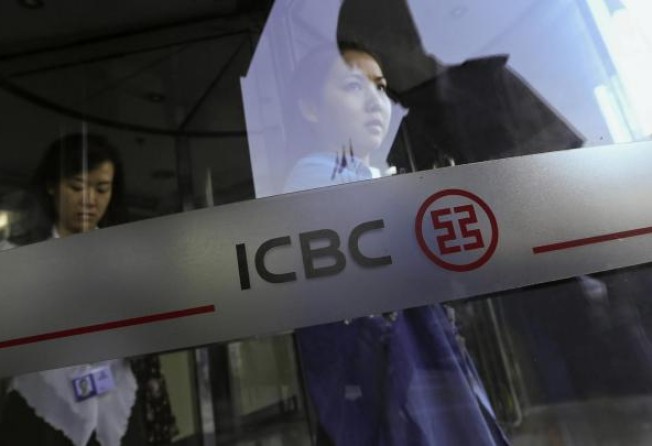
Investment agency Central Huijin increases stake in ICBC and BOC
State investment agency's move on ICBC and BOC is seen as an attempt to stabilise shaky markets before next month's national congress

Central Huijin, an investment agency of the central government, raised its stakes in mainland banks, including Industrial and Commercial Bank of China and Bank of China, in the third quarter, a move analysts say is an attempt to keep the stock market stable ahead of the 18th national congress.

The shares gave the company a stake of 35.43 per cent in the bank at the end of the third quarter, it said.
The purchase followed the buying of 7 million shares in the second quarter.
Huijin has cumulatively bought 116.64 million ICBC shares since October last year when it announced a plan to boost its holdings in mainland banks.
In a separate filing with the Hong Kong stock exchange late yesterday, Bank of China said Huijin had increased its holding in the bank by 18.81 million shares through the conversion of a convertible bond into shares that lifted its stake by 0.01 per cent to 67.64 per cent.
"Huijin's move is aimed at keeping the stock market stable before the 18th national congress," said Wang Aochao, a Shanghai-based analyst at UOB Kay Hian Securities.
The congress is scheduled to start on November 8.
Shares in ICBC yesterday ended 1.5 per cent higher at HK$4.62 in Hong Kong and 1.3 per cent firmer at 3.80 yuan in Shanghai. Both markets closed stronger.
"If the valuations are at a reasonable level, Huijin is likely to buy more shares in [mainland] banks," Wang said.
But investors expecting Huijin's buying programme to boost bank share prices over the longer term may be disappointed because Wang believes bank stocks are not immune to the wider weakness of the domestic share market.
In addition, the profit outlook for banks might not underpin a strong growth in their respective share prices because of weak loan demand and a squeeze on net interest margins, he said.
Other analysts also expect Huijin to further increase its holdings in mainland banks because it has more cash in hand after it received more than 100 billion yuan (HK$123 billion) in dividends from state-owned banks in July. They say the aim of the government's investing arm is also to help restore investor confidence by supporting the market in the face of a slowing economy.
Edmond Lee, a director of global equity flow at Societe Generale, is bullish on mainland bank stocks, saying the sector was expected to become a top spot in the Hong Kong equity market in the fourth quarter.
"If the onshore market is expected to bottom out, banking issues will have to act as the drivers for the rebound given their heavy weight in the [mainland] market," Lee said.
Despite the scepticism about banks' profit outlook, he said the impact of narrowing net interest margins and risk of rising bad debts seemed to be "limited".
Additional reporting by Eric Ng